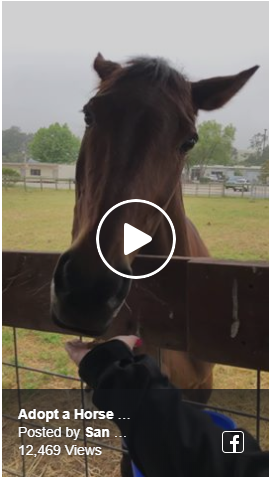
By far and away, most animals (over 90%) handled by the Animal Services Division of the County’s Health Agency are dogs and cats. However, the division frequently deals with animals of many different species, ranging from horses and sheep to koi and goldfish, or from pythons and lizards to Guinea pigs and emus.
The sheer diversity of animals that may be encountered makes it difficult to anticipate, plan, and be prepared for what may come through the shelter on any given day.
Providing safe and secure housing for these animals, along with appropriate feeding and care – often with little or no notice – requires Animal Services’ staff to remain flexible and creative. This is particularly true when faced with many non-traditional animals.
Such was the case in January 2019 when Animal Services took custody of 34 neglected, malnourished, and unsocialized horses. The number of horses exceeded what Animal Services could house and care for at the Oklahoma Avenue shelter and alternative placement was required.
Thanks to the help and efforts of volunteers and community members, Animal Services was able to identify off-site housing for the horses.
Over several months they were able to recover their physical condition and received personal care and attention, helping them to become adoptable companions.
By August, most of the horses had been placed into new homes and were thriving with their new families.
The sheer diversity of animals that may be encountered makes it difficult to anticipate, plan, and be prepared for what may come through the shelter on any given day.
Providing safe and secure housing for these animals, along with appropriate feeding and care – often with little or no notice – requires Animal Services’ staff to remain flexible and creative. This is particularly true when faced with many non-traditional animals.
Such was the case in January 2019 when Animal Services took custody of 34 neglected, malnourished, and unsocialized horses. The number of horses exceeded what Animal Services could house and care for at the Oklahoma Avenue shelter and alternative placement was required.
Thanks to the help and efforts of volunteers and community members, Animal Services was able to identify off-site housing for the horses.
Over several months they were able to recover their physical condition and received personal care and attention, helping them to become adoptable companions.
By August, most of the horses had been placed into new homes and were thriving with their new families.


